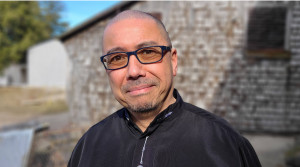“Black-led business and community organizations are calling on the federal government to renew funding for entrepreneur support programs that are set to expire in the spring,” the article begins. The reasoning is that they need the money to “invest in Black Canadians to ensure the group’s economic contributions to the Canadian economy.”
Of course, this generated a lot of activity in the comment section. Once you sorted through some of the blatantly bigoted comments, most Canadian taxpayers raised some valid points. Here are a select few:
· “Prove that this program adds to Canadian productivity and has a net positive return-on-investment using real-world figures, then fund away! Otherwise, no thanks.”
· “Businesses must compete in the marketplace. Unless the black business is not viable and can only survive on taxpayer subsidy, then it isn't a business at all.”
· “So go ahead and invest in yourselves, nobody is stopping you. You are asking everyone else to invest in you.”
Contributions to the economy usually happen because Canadians are entrepreneurial and do things on their own accord, regardless of ethnic or racialized group, without asking the government for money.
This top-down government policy approach sends the wrong message that Black people are not capable and can’t compete in the real world. Of course, this is not true. Black entrepreneurs are competing and winning regardless of the odds. But the Black Entrepreneurship Program makes Black entrepreneurs look like victims.
If you think about yourself primarily as a victim, it relieves you of all responsibility. You claim to be a victim, yet at the same time, you seek power by asking the government to empower you, projecting that you are incapable of competing in the mainstream.
However, the reality is that many Black entrepreneurs and professionals continue to overcome challenges with their intellect and figure out ways to get things done, and to thrive! That culture of determination and perseverance is passed down like DNA to their kids. It becomes cultural and intergenerational. The framing of The Black Entrepreneurship Program is unfortunate and, in many ways, discouraging to young, Black potential entrepreneurs with good, innovative ideas.
In the wake of global reactions to George Floyd’s murder in 2020, coupled with the pandemic, emotions ran high, and Ottawa introduced multiple multi-million-dollar programs under the Black Entrepreneurship Program to support Black businesses, seemingly out of sympathy. Now that the funding will run out on March 31, 2025, the program leaders are asking the government for more money to continue funding them beyond 2025.
However, as a Canadian taxpayer and entrepreneur who happens to be Black, while I’m not inherently against such programs that can help minority groups, these programs must make sense, both for the minority group and the Canadian economy. It must stand up to scrutiny, and hard questions must be asked.
What do the return metrics look like for Canadian taxpayers and the Canadian economy? We have not seen any meaningful analysis to determine the efficacy of these programs, particularly ones that operate based on offering loans to Black entrepreneurs.
The Federation of African Canadian Economics (FACE), the subject of the Globe and Mail article, is the largest non-profit organization running such a program with BDC and a couple of credit unions, as per the article. I went through the “FACE 2023 Annual Report” on their website but there were no intrinsic performance metrics regarding either the performance dynamics of the loans or impacts (actual and potential) on the Canadian economy, which are major premises for the program initiative. I found no broader strategy or business plan on the future self-sustainability and longevity of the “business” of issuing loans to Black entrepreneurs. And I came away thinking that these Black non-profit programs plan to be solely dependent on the government going forward. However, governments change and programs get cut, and reliance on them is not a long-term sustainable or winning strategy.
The main point is that loans are counterintuitive and counterproductive to real-world entrepreneurship. Entrepreneurship is usually fueled by equity—venture capital—from friends and family to VC funding and everything in between. Not through bank loans, which only serve to put Black entrepreneurs at a significant disadvantage against other non-Black entrepreneurs competing with the leverage and freedom of equity.
Years ago, when the Canadian government wanted to spur the Canadian tech sector, it understood that financing was central to future success. So, they sought to invest in tech businesses/entrepreneurs. However, it was not through loans but pure equity, using venture capital firms to flow the equity capital and make the investment decisions. The Government, via BDC, for example, flowed hundreds of millions of dollars to Canadian VC firms. Fast forward, many of those investments made by VCs failed spectacularly. However, those entrepreneurs were not saddled with debt and ruined credit.
Georgian Partners, the largest VC firm in Canada, simply took a write-down from US$275.2 million invested to US$ 91.2 million on a single failed investment (WorkFusion,) and “Georgian wrote down 28 investments in 21 companies – wiping out US$430-million in book value – across its five oldest active funds,” as reported by The Globe and Mail. BDC alone devalued its VC investment holdings by $1-billion over the past two years, which is just astonishing! Where is the accountability and responsibility?
We must take time to learn and understand how the real world and markets work, including investing and entrepreneurship, and make sensible, well-informed, sustainable economic growth decisions—choices that are in the long-term best interest of ourselves and our broader community.
With equity financing, there is no loan to repay and no pledging of personal collateral. The entrepreneur doesn't have to make monthly loan payments, particularly if the business doesn't initially generate a profit or, more likely, even revenue. This, in turn, gives the entrepreneur the freedom to channel more money and energy into the growing business.
Equity financing shares the risk between the entrepreneur and the investors. If things don’t work out, the entrepreneur is not left saddled with debt obligations and personal guarantees that can cripple them. Debt is inappropriate for entrepreneurship and is not the optimal source of financing entrepreneurship in the mainstream.
These not-for-profit activist-tinted organizations have not been formed with experienced entrepreneurs, businesspeople, capital markets professionals, etc. Instead, community activists were launched into roles as “CEOs” of pseudo-investment organizations for which they have no qualifications. And they became agents of their funders, not representatives of Black entrepreneurs. They cannot recognize a bad policy or deal, because they have no practical experience, and have no power to negotiate in the best interest of the group they represent.
In the same Globe and Mail article, Liban Abokor, the chair of the Black-led Philanthropic Endowment Fund implores the government to create a “wealth-safety-net.” He says, “When government moves its focus from one area to another, there has to be a safety net for Black communities so that we can continue to invest in ourselves.”
There are no safety nets in entrepreneurship and no safe spaces in the real world; risk must be taken to get a reward. You can’t be an entrepreneur without your skin in the game. The “wealth-safety-net” attitude is testimony to how the activist culture has overtaken common sense and become harmful to the future of Black wealth creation, creating fallacies about closing the so-called “racial wealth gap.”
No amount of government policies, ambitious academic proposals from racial equity-focused non-profit organizations, programs and groups, reparations, and DEI arguments can close the racial wealth gap.
Ultimately, it all comes down to “you” and what you choose to do instead of relying on others.
Black Assistant Professor of Economics, Ellora Derenoncourt, at Princeton University, faculty director for the Program for Research on Inequality at Princeton Economics produced a study about the real and perceived causes of the “Racial Wealth Gap.”
She found that the major driver of wealth creation is the rate of change for capital gains. Comparing that rate between White and Black groups gives us a good understanding of how the “gap” has developed over time. Looking at the capital gains in the composition of wealth portfolios across Black and White groups, the average Black wealth portfolio was mostly invested in housing. Almost 70% of Black wealth is held in housing today. Compared to white Americans, that number is more like 40%, with a good chunk of that held in equity, something like 15 or 16% held in equity. But for Black households, that number is 5%.
In the last 40 years, both housing and stock markets have appreciated, but stock markets have appreciated by about five times as much. And when you include private equity business appreciation, the capital gains rate of change is even more profound. From an investment perspective, the difference in price appreciation for housing and equity explains the wealth divergence between Blacks and Whites in the modern era. The differential is the investment in EQUITY (stocks, private businesses, entrepreneurship) for the average white household that has allowed them to gain more from growth in equity over the last 40 years compared to Black households.
One thing remains steadfastly true with all the rhetoric in the discourse; she finds that the policies and bright academic and experimental ideas toward “closing the racial wealth gap” have not and will not work. So, stick with reality, not nice stories.
The fundamentals of wealth creation have not changed. It requires investing in equity/businesses, having an entrepreneurial and growth mindset, creating our own opportunities and investing in it and each other’s business opportunities. Building our network inside and outside of our communities to find capital and opportunities.
In the end, nobody is coming to save us. It is up to us to invest in each other, in equity and entrepreneurship. There is no other way. The economics you create today will produce the social and political power you want tomorrow.

 By
By 





